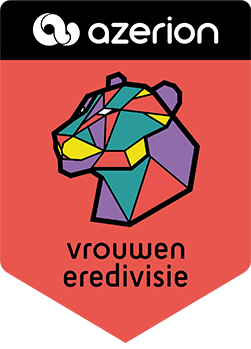It is not possible to load the page you were looking for on KNVB.com.
The website is currently in maintenance mode. Please try again later.
Do you use an adblocker? Try turning it off and reload the page.
KNVB.nl
News and support for Dutch football.
Oranje
The official channel of the KNVB for all Oranjefans.
Voetbal.nl
The platform for results, standings, programs for all amateur football players in The Netherlands.
TOTO KNVB Beker
The latest news, results and programs of the TOTO KNVB Beker.

Azerion Vrouwen Eredivisie
The official channel of the Pure energie Eredivisie Vrouwen with the latest news, programs standings and rundows.
Rinus
The online assistant for all youth trainers of The Netherlands.
KNVB Shop
The offical webshop of the KNVB.
KNVB Ticketshop
The Offical sales channel for the KNVB. Buy your tickets here for Oranje and the TOTO KNVB Beker.
Ensuring the flow and fairness of the game, with high-quality refereeing at all matches – that’s what the KNVB is committed to. And that’s why the association is constantly working to improve the training, development and overall performance of referees.
Key to this is a supporting role for technology in professional football, something the Royal Netherlands Football Association has been advocating for many years.
The use of technology will raise the quality of refereeing as well as the general acceptance of refereeing decisions. This will contribute to the flow and fairness of the game. There is ongoing research, both nationally and internationally, into the extent to which certain instruments and technology can support referees in their decision-making process.
The use of technology have raised the quality of refereeing as well as the general acceptance of refereeing decisions.
In the 2013-14 season, the KNVB launched a two-year pilot scheme called Arbitrage 2.0, which translates as Refereeing 2.0. It included trials of (Hawk-Eye) goal-line technology, the deployment of a fifth and sixth official and video assistent. The pilot scheme was not only unique at the time, but also very succesfull and led worldwide to all kinds of technological applications in refereeing.
The Times report on the KNVB's Refereeing 2.0 pilot, 22 January 2015.
Goal or no goal? – The verdict could decide the game
In July 2012, FIFA decided in favour of the introduction of goal-line technology in national competitions. Immediately after this decision, the KNVB contacted the manufacturers of all available major systems.
In the two-year pilot, the KNVB opted for the Hawk-Eye system, which offers replay of multi-camera footage from various angles to determine whether or not the ball has crossed the goal line. FIFA has allowed the introduction of goal-line technology in national competitions from 2012.
From the very first moment the KNVB strongly believed in the future potential of the video assistant referee (VAR). We were convinced that video assistance could help the on-field referee making decisions by reviewing footage from multiple cameras fitted in the stadium.
FIFA gave the go-ahead for video assistance experiments in March 2016. The first test with a live connection took place during a friendly match between Italy and Spain on 1 September, with on-field referee Björn Kuipers supported by video assistant referee Danny Makkelie. FIFA opted for a Dutch team to conduct this first live test as the KNVB is the international leader in the field of video assistance.
The first live test in the Netherlands was held during the Ajax Amsterdam v Willem II Tilburg KNVB Cup match on Wednesday 21 September, when Pol van Boekel received assistance from video referee Danny Makkelie.
FIFA's rules committee, the IFAB, decided in March 2018 to officially include VAR in the rules. Following this, the General Meeting of Professional Football of March 2018 unanimously decided to introduce VAR in all Eredivisie matches from the 2018-19 season. With VAR, the KNVB aims to make the various competitions fairer and support the referees.
In 2018, the KNVB commissioned the ARAG KNVB Replay Center. This made the KNVB the first soccer association worldwide to have a control room for video arbitration on its own premises. To fully build that in four months - the green light was given for video arbitration in the Eredivisie on March 19 - was quite a challenge. But the result was stunning. The ARAG KNVB Replay Center has a total of six workstations, allowing video referees to be active at five Eredivisie matches simultaneously. One workstation acts as a backup for emergencies.
 Goal-line technology
Goal-line technology was introduced in national competitions in 2012.
Goal-line technology
Goal-line technology was introduced in national competitions in 2012.
 5th and 6th officials
The deployment of 5th and 6th officials during matches has multiple advantages.
5th and 6th officials
The deployment of 5th and 6th officials during matches has multiple advantages.
 VAR
The KNVB is convinced that the video assistent referee (VAR) makes the various competitions more fair and support the referees
VAR
The KNVB is convinced that the video assistent referee (VAR) makes the various competitions more fair and support the referees
 Dutch football continues Refereeing 2.0
Dutch professional football is continuing the Refereeing 2.0 project with more emphasis on the development of a video assistant.
Dutch football continues Refereeing 2.0
Dutch professional football is continuing the Refereeing 2.0 project with more emphasis on the development of a video assistant.


